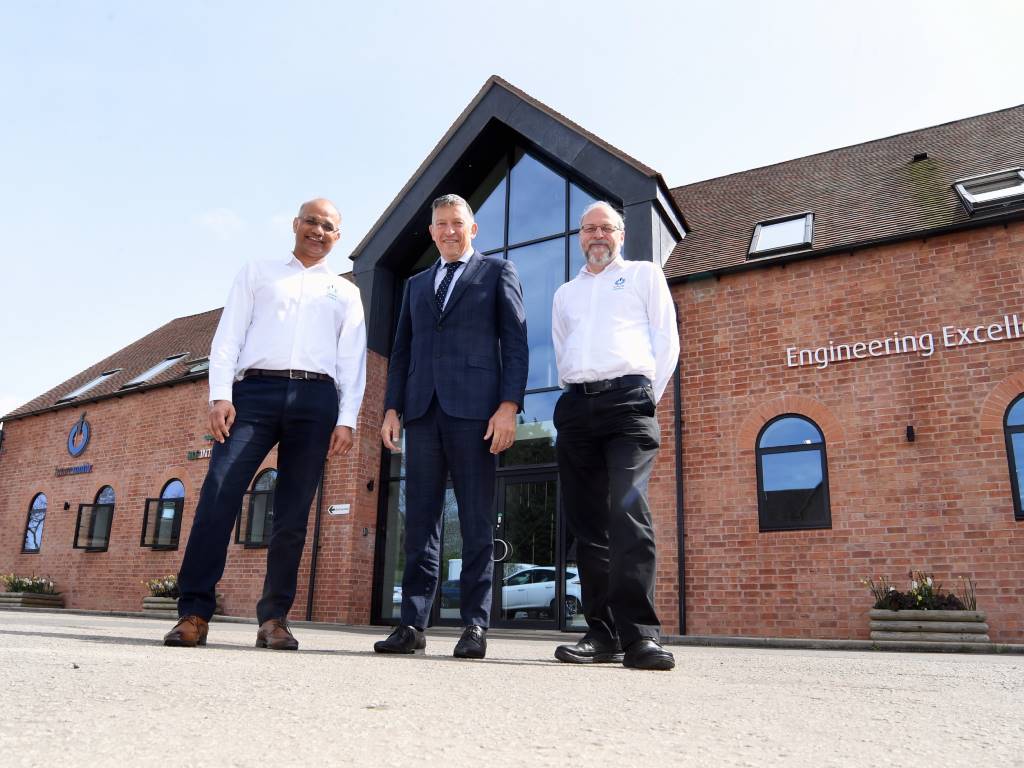Metal meant for machining

Ed Hill visited Ovako’s steel manufacturing plant in Imatra, Finland to see how its advanced steels are created to improve machining properties for customers.
In this job I often hear about the latest CNC machine tools and their capabilities and performance improvements but the most important factor when it comes to cutting speeds and costs in metalcutting is the actual material being machined.
Ovako produces high-tech steel solutions for a broad range of industries. The result of a merger of several Scandinavian steel companies in 1969, the company is now a global operation with around 3,000 employees.
Steelmaking at the Imatra site in Finland can be dated back more than 100 years and the plant is the company’s main producer of its M-Steel range of advanced engineering metals. The ‘M’ in M-Steel stands for ‘Machinability’ and the various grades are specifically produced to offer metalworkers better cutting performance and as a consequence more efficient production.
Lotta Ruottinen, vice president, marketing and technology at Ovako comments: “Our steel products are high end engineering steels that are more resistant to problems such as fatigue and corrosion. We do not produce stainless or mild steels and all our production is based on recycled scrap. At Imatra we have about 600 employees producing round or square bars; in 2015 sales amounted to €862 million for the whole group. Nordic countries represent around 40% of sales and then the rest of Europe with a small amount exported to North America and Asia.”
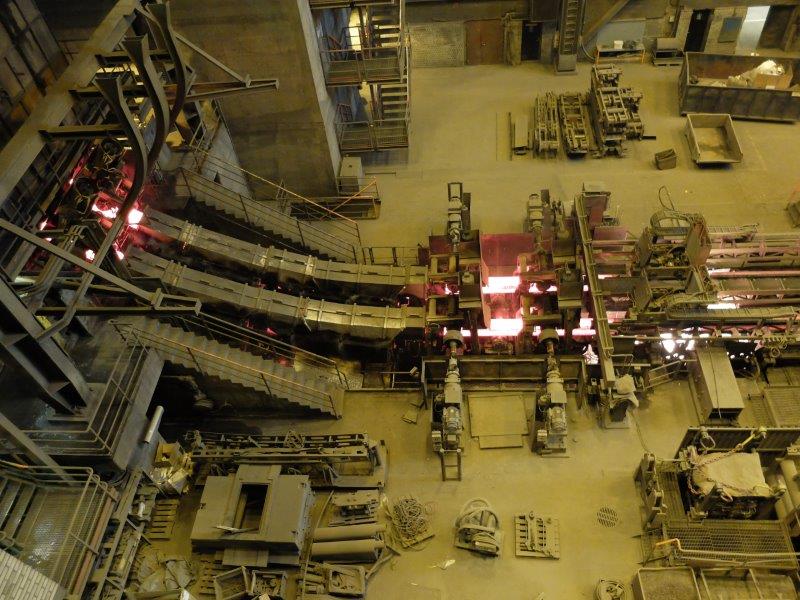
Ovako focuses wholly on engineering steels. Alongside M-Steel it also produces, BQ-Steel (Bearing Quality), IQ-Steel (Isotropic Quality), WR-Steel (Wear Resistant), SZ-Steel (Sub-Zero, designed for safer and more reliable performances in cold climate temperatures down to and beneath -40ºC) amongst others.
The end users of its steels include markets such as: automotive (particularly trucks), heavy plant used in industries such as forestry and agriculture; rail; mining; oil and gas; hydraulics; wind power and general engineering. The products produced from its steel can include anything from gears in a powertrain to an axe head.
The truck industry especially is a major market – the company claims that every large European truck on the road has at least 1,000kg of Ovako steel in it from crankshafts to axle beams; from roller bearings to cabin stabilisers.
Making the grade
The company first developed M-Steel around 30 years ago and since then it has continually improved the product to the point where it says machining can be sped up by around 30% compared to conventional steels. Typical examples include Ovako’s 520 grade and 34CrNiMo6.
Ovako creates these machinability improvements by carefully controlling the production process from the raw scrap material, through the melt and subsequent casting, hot rolling and final heat treatments such as quenching and annealing.
With M-Steel small amounts of calcium are added during the melt process to create softer, rounder and more regular inclusions in the metal. One benefit of this process is that when the metal is machined a lubricating film is created between the cutting tool and the chip interface, improving machining characteristics such as chip formation, surface finish and extended tool life.
Reeta Luomanpää, product manager M-Steel explains: “The main advantage when using M-Steel is lower machining costs because you can use higher speeds and feeds. Even if you cannot get speed advantages because of the machine tool used, you can at least get much longer tool life which can be up to five times longer when machining M-Steels compared to normal steels.
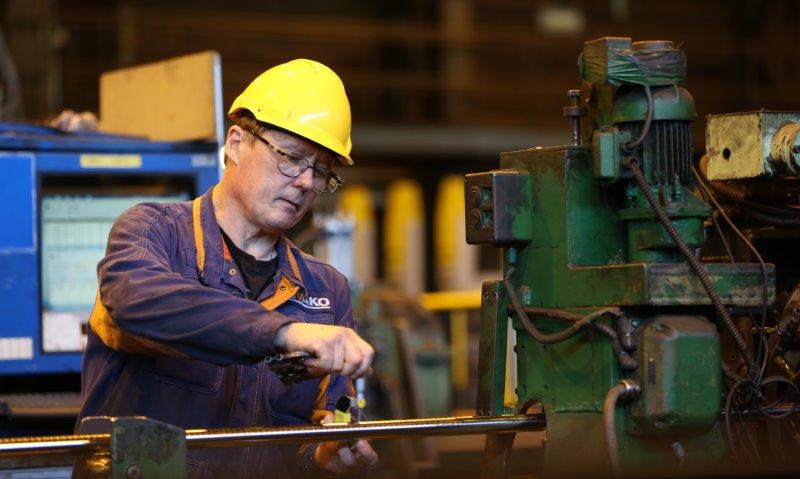
“Cutting speeds can be up to 30% higher, so floor-to-floor time for a workpiece can also be around 30% faster. It means fewer breaks in production as machining tends to go more smoothly and there are fewer tool changes. This is also beneficial for lights out production. Additionally, M-Steel has the benefit of upping production rates. Where a machine is creating a bottleneck because it is cutting a part slowly it does not have to be replaced by a newer faster and expensive machine tool because by changing to M-Steel the part is easier to machine.”
In one customer study an engineering company called Leimet used Ovako’s 520 grade M-Steel to manufacture a locking spindle. The company produces around 300,000 spindles annually machined from 40mm bar. In a five-day trial the company found that cutting tool life increased by around three times; cycle time was reduced by 13% – a time saving of 670 hours/42 days annually; chip problems and tool breakages were eliminated and there were no disruptions during unmanned operations. The M-Steel also provided better, more consistent quality compared to the conventional S355J2 grade steel the company had used previously. This meant that overall despite the slightly higher initial material cost of M-Steel, the part was 20% cheaper to produce.
Hot metal
Watching Ovako’s metal making process is rather like being in a fantasy landscape found in The Lord of the Rings. The mill takes in the raw scrap at one end, melts it in 75 tonne electric arc furnaces, refines the molten metal in massive ladles and bloom chambers through processes such as alloying, degassing and homogenising, and then continually casts it into large metal extrusions that are rolled into long sections of round or square bars.
Additional processes such as, heat treatments, cold drawing and peeling are then carried out according to customer demand. Its round bars range from 21.85mm to 200mm, square bars are produced in sizes ranging from 30mm to 150mm.
Ovako also produces M-Steel tube at another site. Its latest seamless tube material M-Steel 280 is a low carbon, micro alloyed steel combining high strength with excellent machinability and weldability.
Hollow bar helps to reduce machining times as it can eliminate a complete machining process where a central bore is required. With this type of component, it significantly reduces production time.
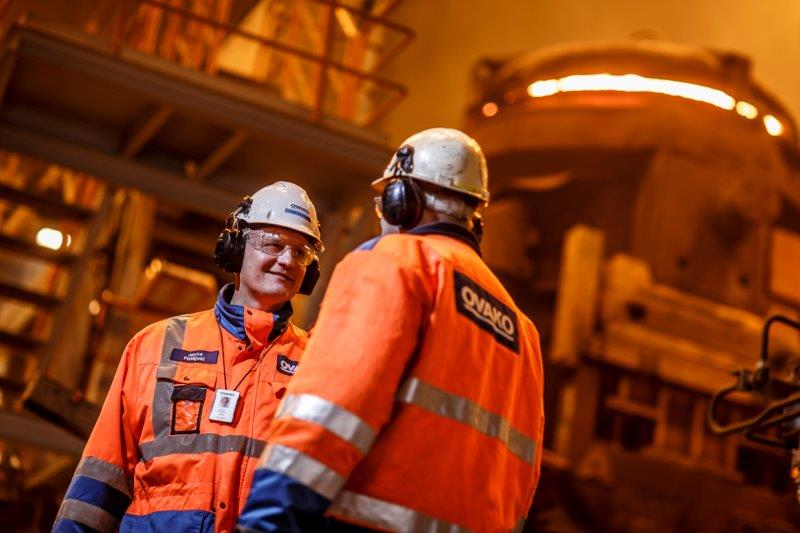
Ovako carries out extensive testing at Imatra. The company works with many of its customers to create grades of steel that meet their requirements. The company is also approved to grant many of the certifications that are required by its customers and their end users for the steels it produces.
Ms Luomanpää continues: “The consistency of the material is very important to us so our customers can machine from batch-to-batch and keep their cutting data the same. We promise machinability will not change from each delivery and we carry out machining tests for our customers on our laboratory lathe. We carry out these tests every month to ensure customers are still able to cut to the correct parameters. We also supply cutting data for our materials, including M-Steel for customers. We have a very good relationship with toolmakers such as Sandvik Coromant for example, who we cooperate with to acquire cutting data.”
The hard part
With its latest grades of M-Steel Ovako has found that some of its customers are now also able to carry out hard part turning of workpieces. The process offers machinists significant advantages when working with very hard metal surfaces. The usual way to final machine these materials to tight tolerances is by grinding, however, by using the latest Boron nitride inserts (CBN) to cut M-Steel, the required tolerances and surface finishes can be achieved by cutting without the additional process and expense of grinding with its often costly machines, grinding wheel consumables and need for manpower.
Ms Ruottinen comments: “This is an area that we need to focus on with our customers because many of them are used to the traditional process of grinding. Nearly all our customers can find an M-Steel grade suitable for their particular machining and component needs.”
Having moved from the hot environment of the Ovako mill, it was nice to find oneself in the relative comfort of the modern machine shop of ITA Nordic, a nearby subcontractor and customer of Ovako. The company specialises in making nuts and bolts in powertrains for forestry, agriculture and marine machines, as well as supplying the mining, oil and gas and wind energy markets, with parts.
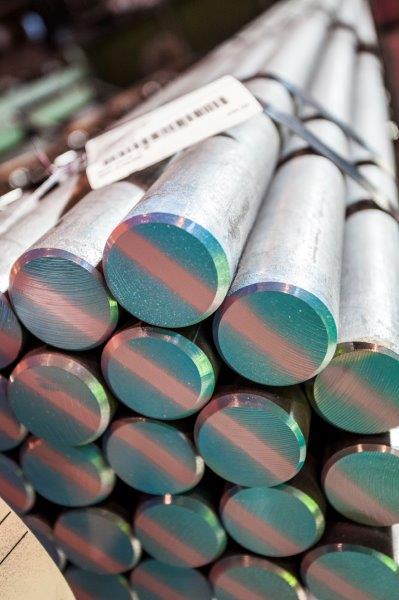
The subcontractor has 12 CNC machines, six of which are in robotised production cells, so lights out production is a big element of its operation.
Mikko Matikainen, joint owner and finance manager at the company explains: “The quality of the materials we use has to be excellent because we carry out our own surface inspection of the parts. It is a big problem if we find something like a crack after machining and we know the customer will reject the part.
“Ovako also give us an eight-week delivery time which is very good when it comes direct from the mill. You can get almost any classification of steel that is required which is also important because many of our components have some sort of classification request. I have been able to get some extra classification requirements directly from Ovako’s lab in the past so they can be very flexible which is helpful.”
He concludes: “With M-Steel we have had up to three times longer tool life. This is very beneficial as we are trying to introduce automation as much as possible. The material also forms smaller chips which means they come off the machine better. All in all, machining is more reliable so we have longer times when the machines are cutting. For example, we make one nut in batches of around 2,000-off and in batches of that size M-Steel is definitely more cost-effective.”
Ovako www.ovako.com




